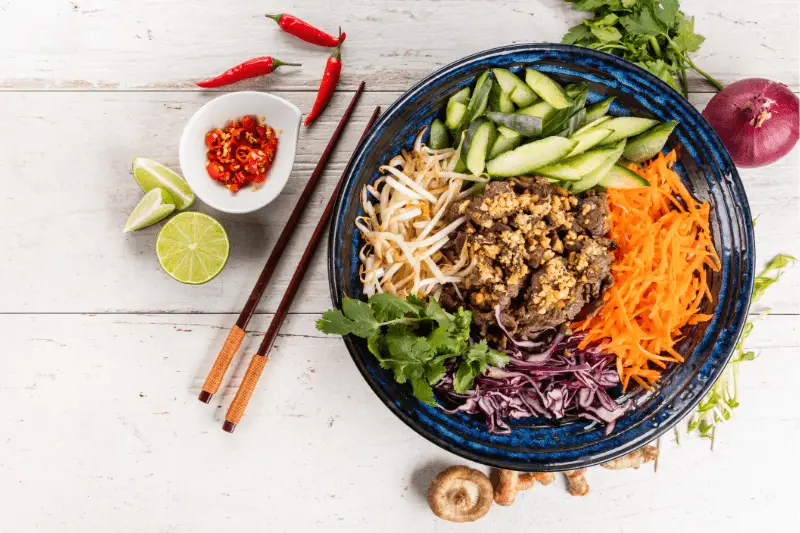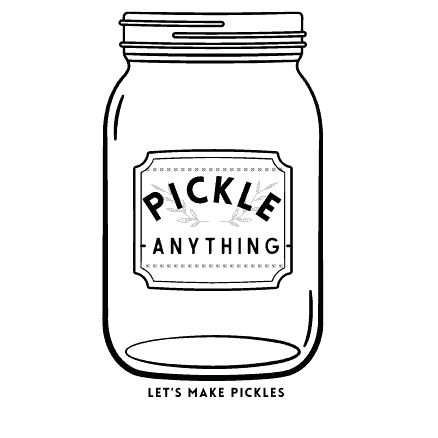If you’re a fan of Vietnamese cuisine, chances are you’ve had the pleasure of enjoying pickled carrots.
These crunchy, tangy, and slightly sweet pickles are a staple in many Vietnamese dishes, adding a burst of flavor and texture to each bite.
But pickled carrots aren’t just delicious, they’re also a healthy addition to your diet.
In this article, we’ll explore the history and health benefits of Vietnamese pickled carrots, as well as some tips for making them at home.

What are Vietnamese pickled carrots?
Vietnamese pickled carrots are simply carrots that have been pickled in a mixture of vinegar, sugar, salt, and sometimes other ingredients like garlic, ginger, and chili peppers.
The pickling process gives the carrots their distinct tangy flavor and crunchy texture.
Pickled carrots are often served as a side dish or condiment in Vietnamese cuisine, accompanying dishes like banh mi sandwiches, grilled meats, and noodle dishes.
A brief history of pickling in Vietnam
Pickling has been a common preservation technique in Vietnam for centuries.
It was originally used to extend the shelf life of fresh vegetables and fruits, especially during the rainy season when produce was abundant but spoilage was a risk.
Pickling also helped to add flavor and variety to the local diet, as it allowed for the consumption of preserved foods in times of scarcity.
In addition to pickled carrots, other pickled vegetables commonly found in Vietnamese cuisine include daikon radish, cucumber, and green papaya.
Health benefits of pickled carrots
Aside from their delicious taste, pickled carrots also offer a number of health benefits.
Carrots are already a great source of vitamins and minerals like vitamin A, vitamin K, and potassium.
When pickled, carrots retain many of these nutrients while also gaining the added benefits of the pickling process.
Pickled carrots are a good source of probiotics, which are beneficial bacteria that promote digestive health and boost the immune system.
They also contain antioxidants, which help to protect the body from harmful free radicals and reduce the risk of chronic diseases like cancer and heart disease.
How to make Vietnamese pickled carrots at home
Making pickled carrots at home is easy and fun. Here’s a simple recipe to get you started:
Ingredients:
- 4-5 medium carrots, peeled and sliced into thin rounds
- 1/2 cup rice vinegar
- 1/2 cup water
- 1/4 cup sugar
- 1 teaspoon salt
- 1 clove garlic, minced
- 1 small piece of ginger, peeled and sliced (optional)
- 1/2 teaspoon red pepper flakes (optional)
Instructions:
- In a small saucepan, combine the vinegar, water, sugar, salt, garlic, ginger, and red pepper flakes (if using). Bring the mixture to a boil, stirring until the sugar dissolves.
- Place the sliced carrots in a glass jar or container with a tight-fitting lid.
- Pour the hot pickling liquid over the carrots, making sure they are completely covered.
- Let the carrots cool to room temperature, then cover the jar and refrigerate for at least 2 hours or up to a week.
- Enjoy your pickled carrots as a side dish or condiment with your favorite Vietnamese dishes.
Tips for serving and using pickled carrots
Here are some ideas for incorporating pickled carrots into your meals and snacks:
- Add pickled carrots to banh mi sandwiches for a tangy crunch.
- Top noodle bowls with pickled carrots for added texture and flavor.
- Use pickled carrots as a topping for tacos or nachos.
- Serve pickled carrots alongside grilled meats or fish for a refreshing side dish.
- Add pickled carrots to salads for a pop of color and flavor.
FAQs
- Are pickled carrots high in sodium? Pickled carrots do contain some sodium due to the pickling process. However, you can control the amount of sodium by adjusting the amount of salt you use in the pickling liquid.
- Can I use other vegetables besides carrots for pickling? Yes, you can use a variety of vegetables for pickling, such as daikon radish, cucumber, and green papaya.
- How long do pickled carrots last? Pickled carrots can last up to a week in the refrigerator if stored in an airtight container.
- Are pickled carrots a good source of probiotics? Yes, pickled carrots are a good source of probiotics, which can promote digestive health and boost the immune system.
- Can I reuse the pickling liquid? Yes, you can reuse the pickling liquid for another batch of pickled vegetables. Simply strain out any solids and bring the liquid to a boil before pouring it over the new vegetables.
In conclusion, Vietnamese pickled carrots are a delicious and healthy addition to any meal.
They offer a tangy, crunchy texture and are packed with nutrients and probiotics.
Making pickled carrots at home is easy and fun, and they can be used in a variety of dishes to add flavor and texture.
So why not try making your own pickled carrots and enjoy the many benefits they have to offer?
